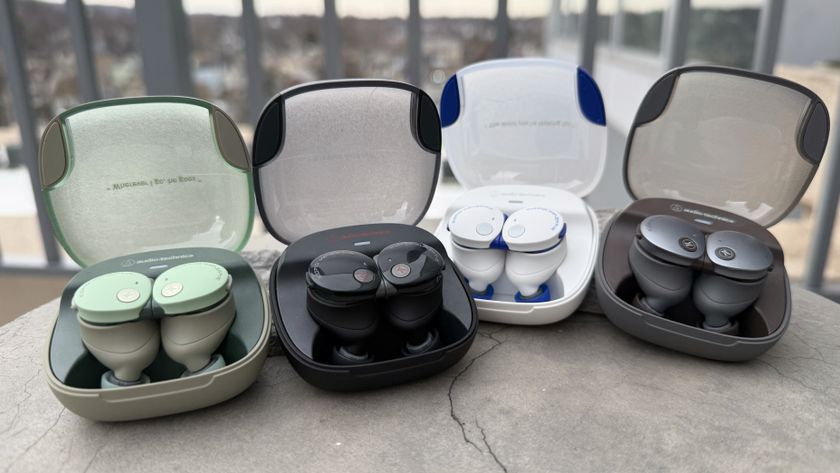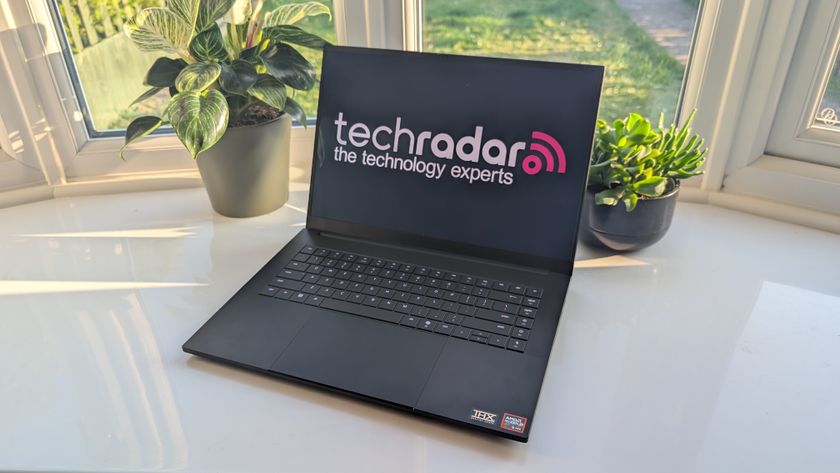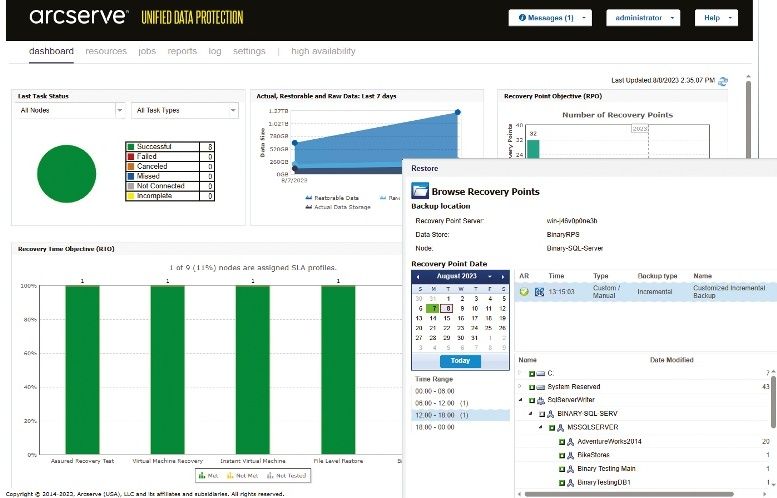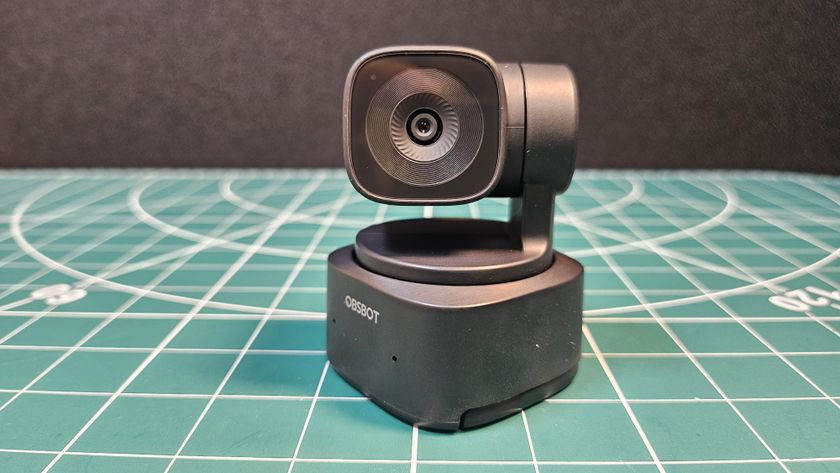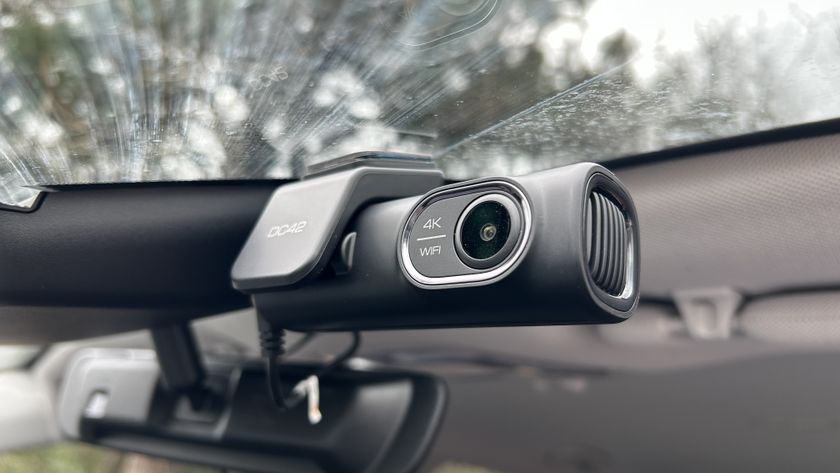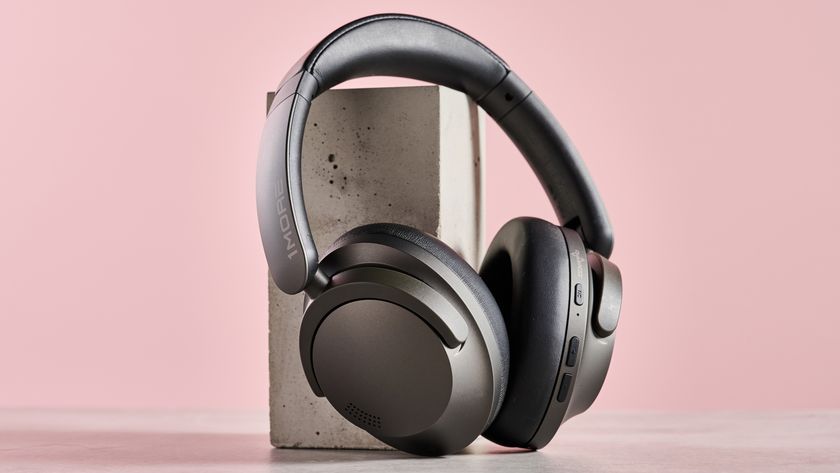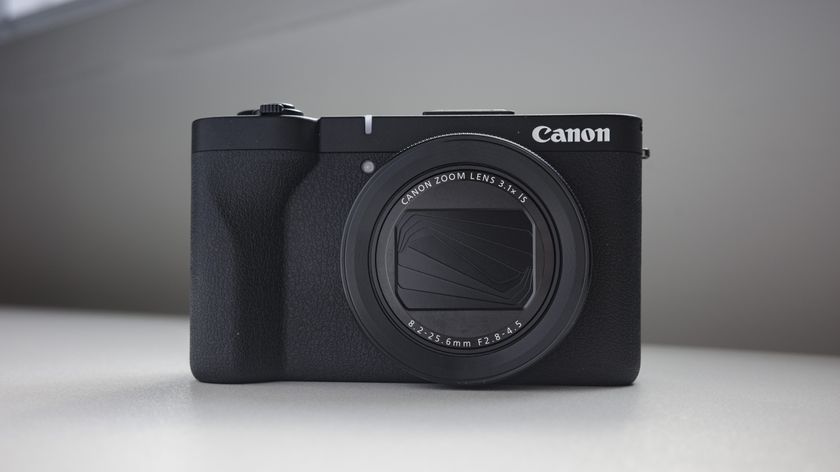TechRadar Verdict
Immensely flexible DAC which possesses a great sense of fun, that's not entirely backed up by detail and precision. Soundstage is not as broad or deep as some manage, and sound can lack focus
Pros
- +
Fun and versatile DAC
- +
Well-made
Cons
- -
Can lack focus
- -
Soundstage not as deep as some rivals
Why you can trust TechRadar
Plenty of inputs are catered for on the Apogee Digital Mini-DAC.
There are actually relatively few connectors at the rear of the unit, just one each of electrical and optical S/PDIF plus a 9-pin D connector for inputs (USB is an option, as is Firewire).
That 9-D is used to attach an adaptor with two XLR sockets, for use with professional sources including double-cable 192/176.4kHz devices and multichannel ADAT.
Analogue output is balanced via XLR outlets, but a 3.5mm jack offers unbalanced too, while headphones are catered for on the front panel. Headphones and optional line outputs are adjusted from the front panel with a knob that, yes, goes all the way to 11! Actually maximum output in variable mode is healthy – some 12 volts via the balanced output.
Fantastic build quality
Incoming sample rate is indicated by LEDs on the front, while further LEDs show lock and also a basic signal level indication.
When there is no incoming digital signal, all the LEDs flash on and off in sequence like a drugged-up Christmas tree, a good incentive to save electricity by turning off!
Internal construction is excellent, based on a board the full size of the case with dual input receivers, a high-grade Analog Devices DAC and plenty of top-quality op-amps.
Limited scope
Our listeners seemed united in finding this DAC better with a small group of musicians than with a full symphony orchestra. Criticisms were mild, but it does seem that in very busy material there is some compression of the soundstage and slightly less grandeur and scope to the sound than some of the other DACs managed.
By contrast, our Miles Davis track was spacious, detailed and, perhaps most importantly, full of life and warmth, with a full but not overblown bass and plenty of atmostphere. One listener did comment that the trumpet seemed a touch shrill on its highest notes, but in this case that's probably just being realistic.
As the number of musicians increases, so the precision very slightly diminishes. The Penguin Cafe Orchestra is around ten players and while its sound is still quite vigorous and energetic, there's a hint of a 'halo' around the lower instruments in particular. Full orchestra similarly loses some focus, but it is worth noting that the sound is at all times lifelike.
Fun DAC
Listening sighted, we felt that the sound becomes slightly impersonal at times, which has an effect on one's sense of overall envelopment.
There's nothing to criticise tonally and it's possible to hear that everything one is accustomed to hear in a familiar recording is still there, but the fact that one does have to concentrate is not ideal – the best hi-fi conveys the subtleties without the listener having to make the effort.
Recommended for its life and sense of fun, but the Apogee Digital Mini-DAC doesn't seem the most insightful DAC.
The TechRadar hive mind. The Megazord. The Voltron. When our powers combine, we become 'TECHRADAR TEAM'. You'll usually see this author name when the entire team has collaborated on a project or an article, whether that's a run-down ranking of our favorite Marvel films, or a round-up of all the coolest things we've collectively seen at annual tech shows like CES and MWC. We are one.


